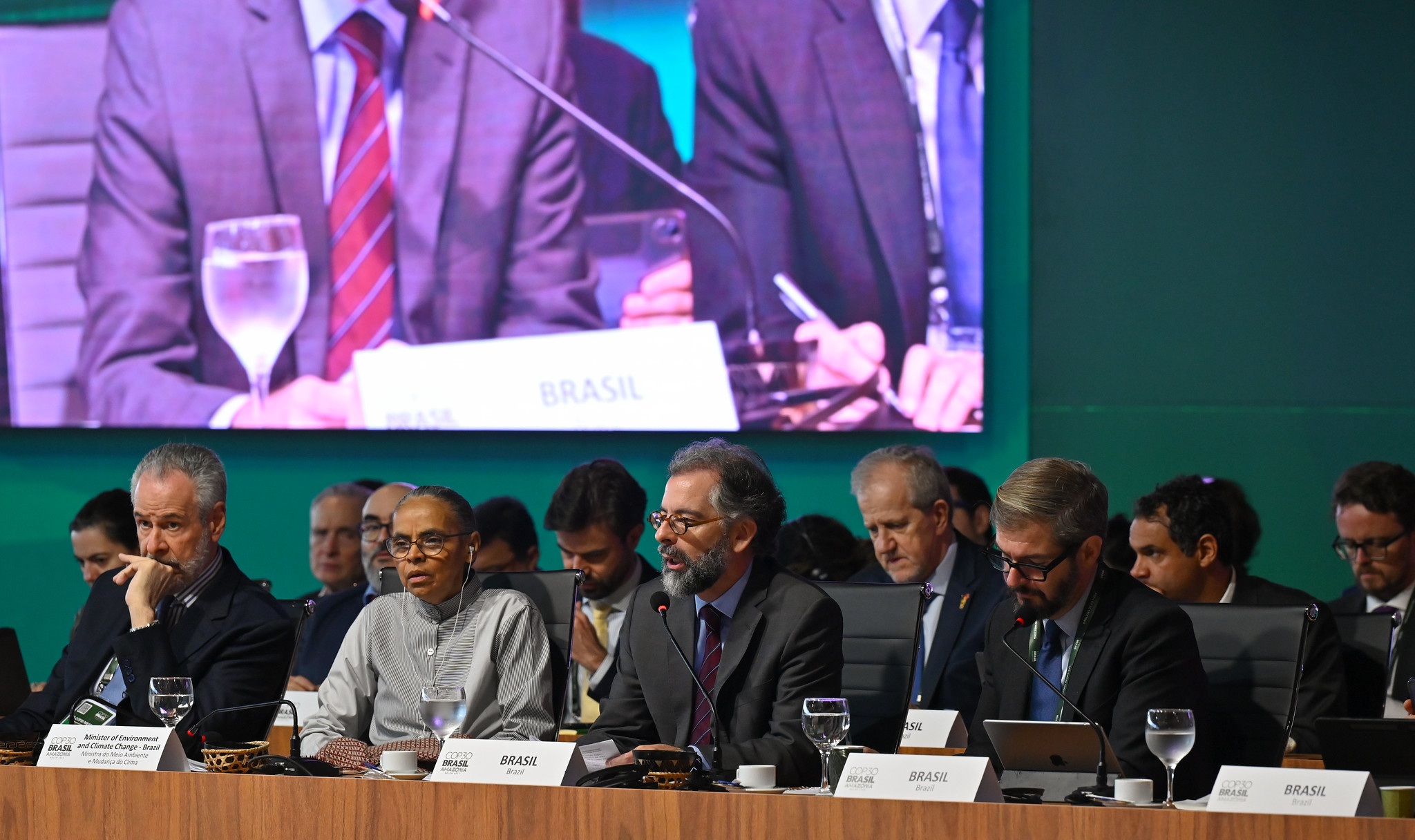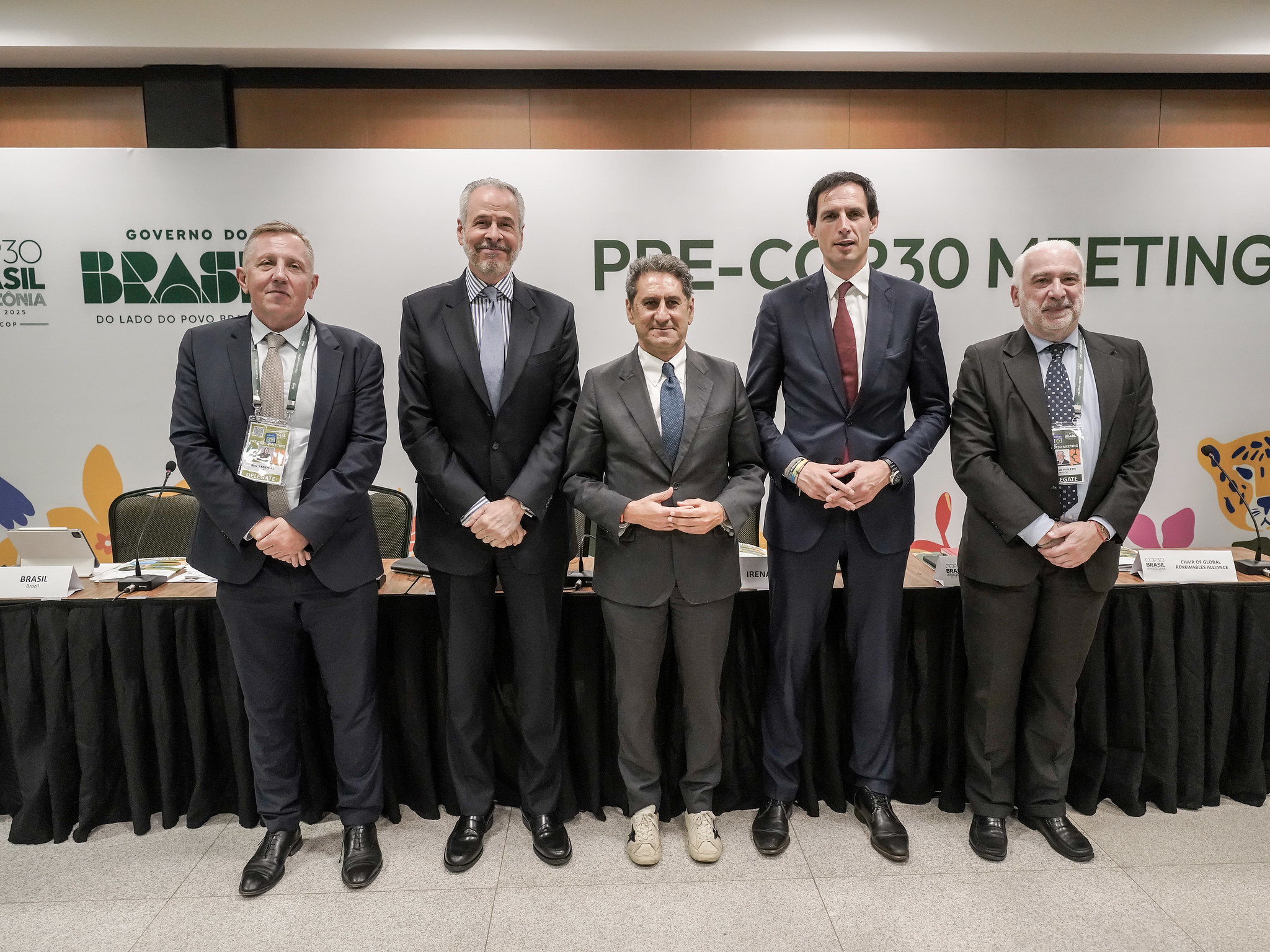Brazil Pledges to Quadruple Production of Sustainable Fuels
Two major reports released at the Pre-COP will serve as the foundation for Brazil’s goal of quadrupling the use of sustainable fuels by 2035 and accelerating the global transition to renewable energy.

By Mayara Souto / COP30

The energy transition took center stage on the second and final day of the Pre-COP, held on Tuesday, October 14, in Brasilia. During the event, Brazil’s Ministry of Foreign Affairs launched the Belém Commitment for Sustainable Fuels—known as Belém 4x—an initiative aimed at building high-level political support for the global goal of quadrupling the production and use of sustainable fuels by 2035.
The target is supported by a groundbreaking report from the International Energy Agency (IEA), Delivering Sustainable Fuels – Pathways to 2035.
Belém 4x seeks to promote the worldwide adoption of clean energy sources—such as hydrogen and its derivatives, biogases, biofuels, and synthetic fuels—capable of replacing fossil fuels and contributing to the decarbonization of energy systems and the fight against climate change.
“This initiative seeks the support of as many countries as possible to send a political signal, including to economic stakeholders. Many of these technologies are technically viable but are not yet produced at sufficient scale,” noted João Marcos Paes Leme, Director of the Energy Department at Brazil’s Ministry of Foreign Affairs.
Japan, Italy, and India have already expressed support for the Brazilian initiative, and more countries are expected to join the international commitment during the COP30 Leaders’ Summit, scheduled for November 6–7 in Belém.
Focus on Renewable Energy

In addition to the IEA report on sustainable fuels, another key study was presented at the Pre-COP—this time focusing on renewable energy and energy efficiency. The report by the International Renewable Energy Agency (IRENA), submitted to the Global Renewables Alliance (GRA) and the COP30 Presidency, shows that although the world reached a record 582 GW of renewable energy capacity in 2024, an additional 1,122 GW per year will be required to meet the 2030 target.
The outlook for energy efficiency is even more concerning, having improved by just 1% in 2024—far short of the 4% annual increase needed.
“This report shows that we are advancing even faster in renewables than we had anticipated, but we must make an effort, especially to double energy efficiency,” said Ambassador André Corrêa do Lago, President of COP30.
IRENA Director-General Francesco La Camera outlined the steps needed to accelerate progress toward energy transition goals. “Infrastructure comes first—we need interconnected, flexible, and balanced policies. Today, the market is still focused on fossil fuels, but renewable energy must also be strategically planned,” he said. “I believe COP30 is at the heart of this process, as the COP Presidency is clearly committed to driving action,” he added.
The study also revealed that G20 economies—including Brazil—are expected to lead global progress in the energy transition, accounting for more than 80% of renewable energy capacity by 2030. Meanwhile, the more advanced G7 economies will need to expand their capacity to around 20% of the global total within this decade.
Achieving these goals will also require greater financing, particularly for developing countries. The private sector can play a crucial role in this effort, as emphasized by Ben Backwell, President of the Global Renewables Alliance.
“It is essential that the private sector works alongside governments and the COP Presidency to determine how we will implement the acceleration of renewables agreed upon in Dubai. The report shows that 90% of renewable energy projects are more affordable and competitive than fossil fuel projects. Renewables are extremely competitive,” he said.
The report also outlined key actions countries must take to meet energy transition targets: integrating renewable energy goals into Nationally Determined Contributions (NDCs) ahead of COP30 in Belém; doubling the collective ambition of NDCs to align with global targets; and increasing annual investment in renewables to at least USD 1.4 trillion between 2025 and 2030—more than double the USD 624 billion invested in 2024.
Translation: Tadeu Azevedo (POET/UFC)
Proofreading: Michel Emmanuel Félix François (POET/UFC)
